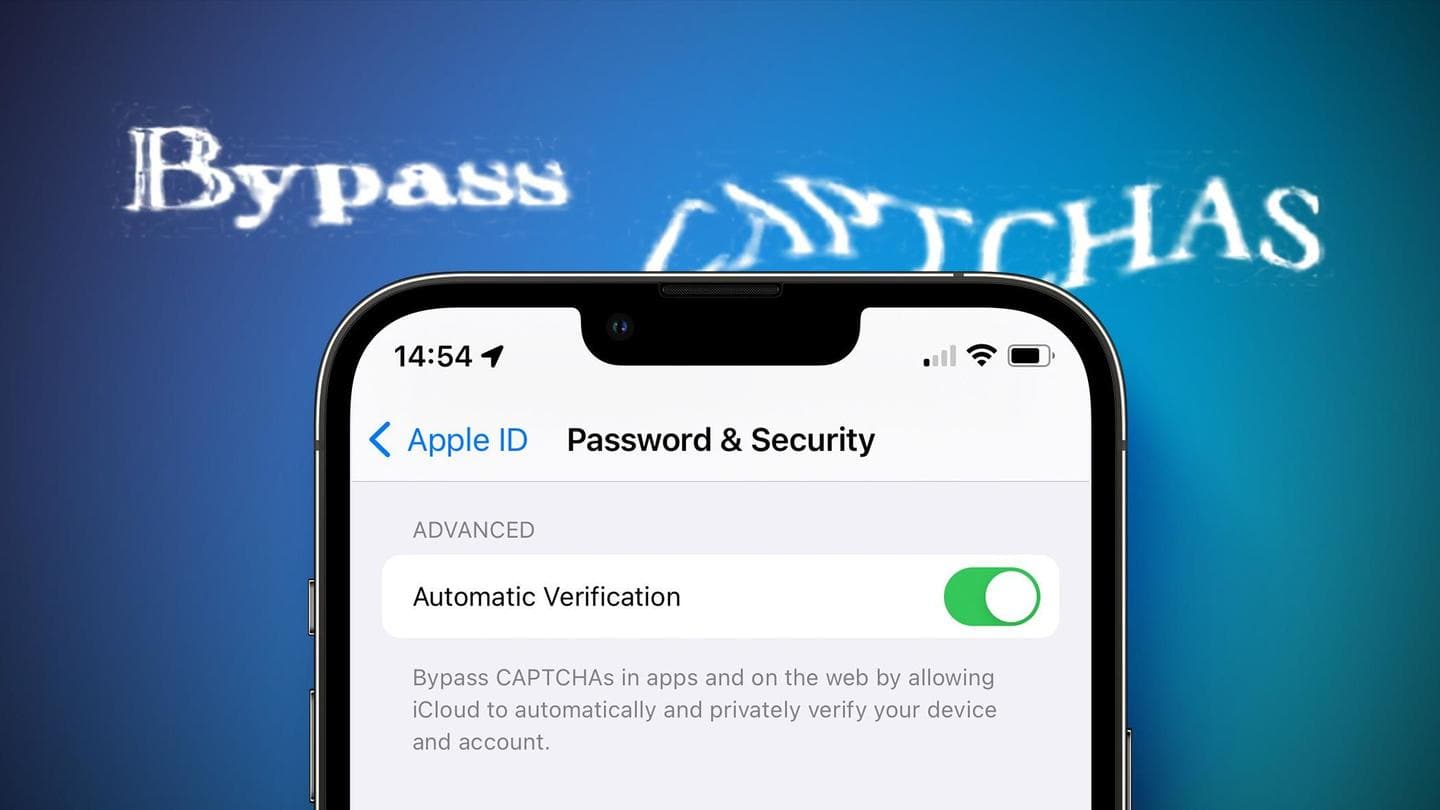
Apple iOS 16's new feature will let you bypass CAPTCHAs
What's the story
CAPTCHAs are annoying. None of us likes distinguishing hills from mountains or picking traffic lights to prove that we're not bots.
Well, Apple users will not have to worry about CAPTCHAs from this fall onward.
Apple will introduce a new feature called 'Automatic Verification' for iPhones, iPads, and Macs to automatically determine whether the user is a human or bot.
Context
Why does this story matter?
Websites try to distinguish a human from a bot using CAPTCHAs. It has been a necessity for sites but has been a curse for netizens.
The scale at which Apple is planning to implement the feature could make a huge difference in how the rest of the industry perceives this change.
This could be the beginning of the end of CAPTCHAs.
Feature
Cloudflare and Fastly will support the feature
Apple devices working on iOS 16, iPadOS 16, and macOS Ventura will be the first ones to get 'Automatic Verification.' The new feature is based on 'Private Access Tokens.'
The system is being developed with the help of Cloudflare and Fastly. When you use any site that uses the services of either to defend against spams, Apple's new feature will come into play.
Process
How does it work?
In simple terms, Apple's system looks at various factors, including your device and Apple ID account to verify that you're human or not. The system then presents a Private Access Token to the website or app.
The feature is available in iOS 16 and iPadOS 16 betas. It can be found in the Settings > Apple ID > Password & Security > Automatic Verification.
Others
Google is also working on an alternative to CAPTCHA
Apple isn't the only one working on ditching CAPTCHAs. According to Fastly, Google has also played a part in developing Private Access Tokens. The company has been working on building a similar system into Chrome.
"Private Access Tokens are a powerful alternative that helps you identify HTTP requests from legitimate devices and people without compromising their identity or personal information," said Apple.